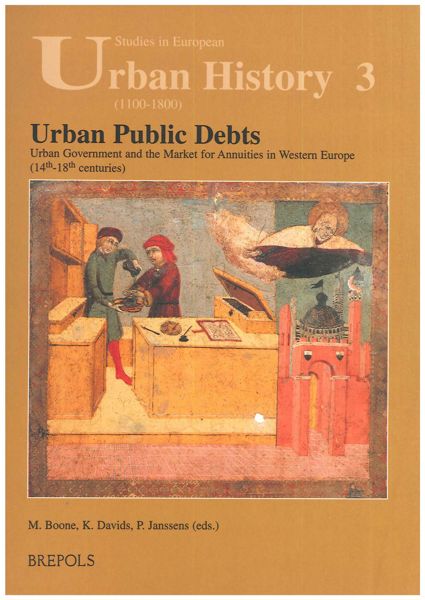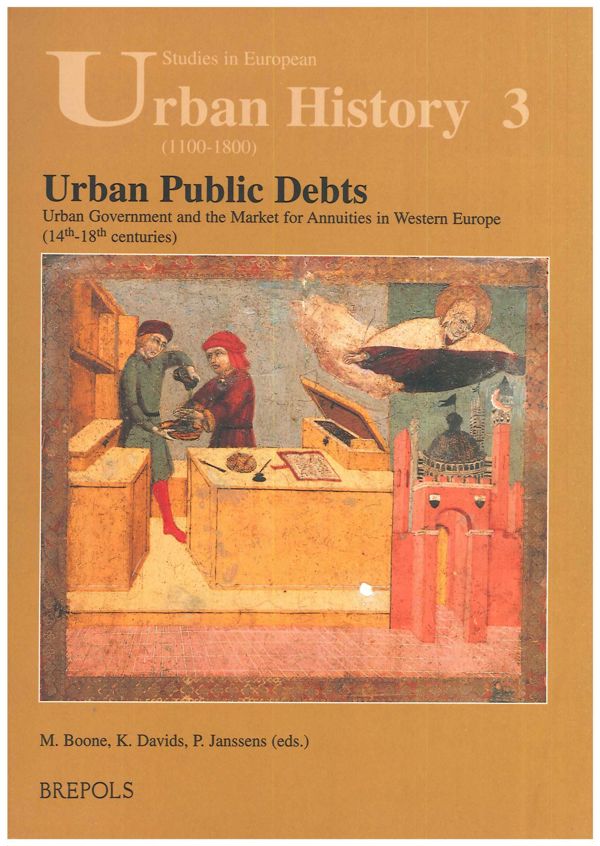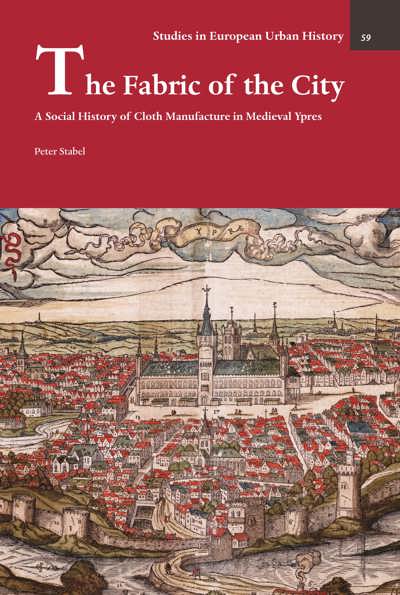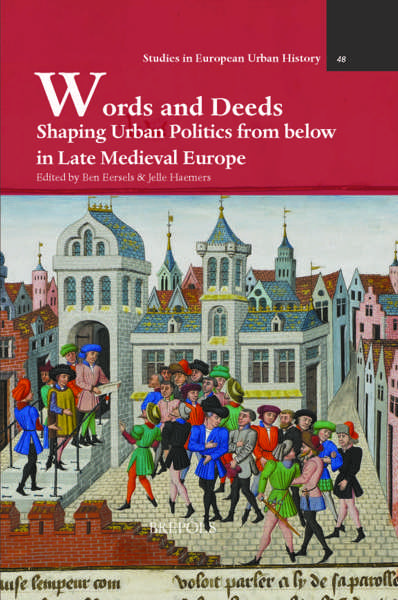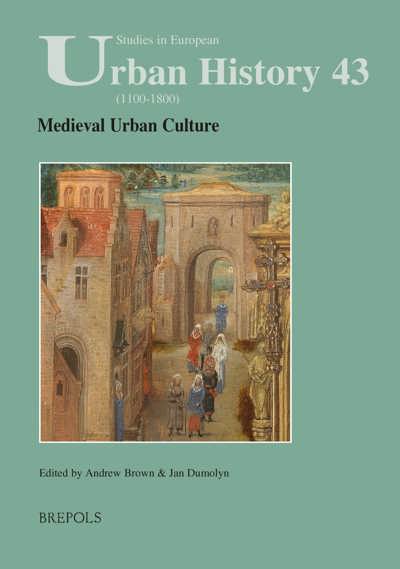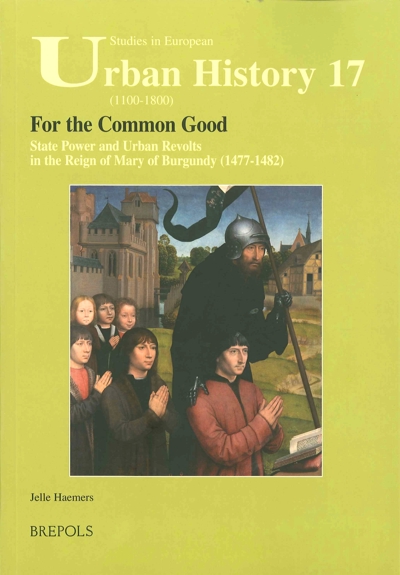
Urban public debts, urban government and the market for annuities in Western Europe (14th-18th centuries)
Marc Boone, Karel Davids, Paul Janssens (eds)
- Pages: 221 p.
- Size:180 x 250 mm
- Language(s):English
- Publication Year:2003
- € 65,00 EXCL. VAT RETAIL PRICE
- ISBN: 978-2-503-51383-6
- Paperback
- Available
- € 65,00 EXCL. VAT RETAIL PRICE
- ISBN: 978-2-503-53880-8
- E-book
- Available
- Urban history (c. 500-1500)
- Economic policies and public finance
- Political & institutional history (c. 500-1500)
- Social history (c. 500-1500)
- Economic history (c. 500-1500)
- Political & institutional history (c. 1501-1800)
- Social history (c. 1501-1800)
- Economic history (c. 1501-1800)
- Urban history (c. 1501-1800)
"Il faut souhaiter longue vie et fructueux résultats à ce vaste projet des universités voisines, Gand, Bruxelles, Anvers et Amsterdam car il focalise l'interêt sur un dispositif capital des sociétés médiévales et d'Ancien Régime, le caractère multiforme de la rente." (Jean-Claude Hocquet, Revue du Nord, 86, 2004, 838-840).
"The individual essays deal with public debt in Venice, Rome, Amsterdam, Bruges, the Swiss towns and elsewhere. The contributors were well chosen, and every study is a valuable part of the whole picture of the sophistication of the borrowing systems supporting the complex financial structures of these wealthy urban communities." (Richard Holt, Urban History, 2004)
The essays in this volume offer a state-of-the-art analysis of a heretofore somewhat neglected part of financial history: the way in which urban governments in Western Europe during the late Middle Ages and early Modern Times handled the public debts their cities were confronted with. The technical aspects of the sale of annuities (renten, rentes) may have already been abundantly studied, but the links with social and political history still needed to be tackled. Who bought these annuities and thus participated in sharing the burden and profits which were likely to arise from them? What were their motives? How did the obvious links with urban elites work? And, perhaps most significantly, how did these occasional sales evolve into a structural way of linking financially important private persons with public finances, in the context both of cities and of growing states, since often the cities needed the money on a short-term basis in order to accomplish their own financial obligations toward 'the state'. Participants in the colloquium where a large number of the essays were first presented represent in the first place the urban strongholds of Europe in the period under scrutiny: the Low Countries and Northern and Central Italy, but the Swiss cities, the cities of Aragon, London and papal Rome are also considered.
